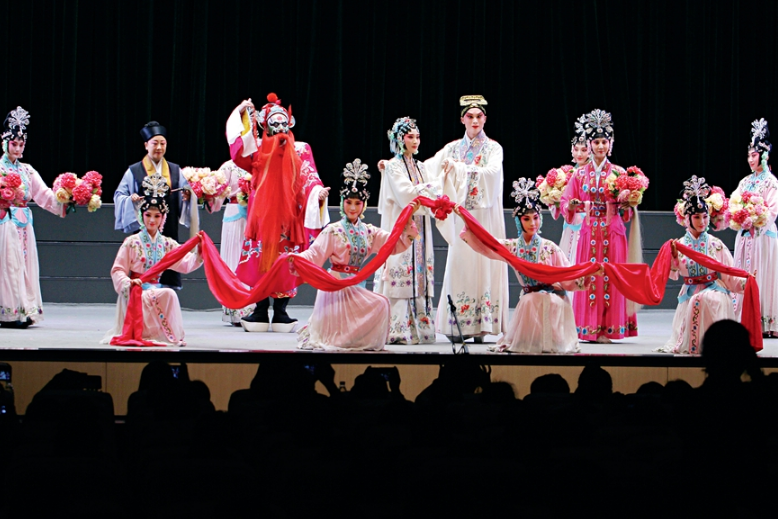Revive an Ancient Opera
China Today,May 28, 2018 Adjust font size:
Appealing to Today’s Audiences
Hao’s remake of “A walk in the Garden” and “The Interruption of a Dream” stars several celebrated Kunqu artists, and has received broad attention in the opera circle. She and her team are refining the play in preparation for an international tour.
The Belt and Road Kunqu Opera Theatre has a staff of two dozen who are all trained opera artists in their 30s. “Opera players are hardworking, and have a strong sense of teamwork. In schools, we were repeatedly told to see ourselves as a vegetable in the garden, meaning we must support each other on the stage. This spirit is critical for a young team like ours,” Hao said. Her team shares the goal of reviving the ancient art of Kunqu.
For the first step, they collected dossiers of the Qing Dynasty (1644-1911) performance authorities, which included 11,498 plays staged for the royal family and general public during the time, along with records of props and costumes. In collaboration with Peking University and experts from other institutions, the theatre hopes to bring some very old plays back onto the stage. “There is a lot of work to be done, such as rewriting the play in modern Chinese, and modifying the plots to fit with the current social context,” Hao said. Many scholars and artists have shown interest in this project.
The Belt and Road Kunqu Opera Theatre also plans to develop new media formats of the opera, including cartoon, film, mobile phone game, and TV drama. However, Yang Fengyi, herself a senior Kunqu player, cautioned, “When promoting Kunqu internationally, we must be firmly grounded in native culture while developing a global vision. Chinese culture should stand its ground, and never make excessive concessions to pander to foreign cultures.” She spoke from her experience of performing abroad. “We have underestimated the aesthetic capacity of the foreign audience. People of different nations actually have similar perceptions of art.”
On this point, Hao agrees with Yang. “To revive Kunqu, we need innovative thinking. But innovation is in no way a subversion of tradition.” She opposes retrofitting foreign plays into Kunqu or reworking Kunqu into Western operas.
With the support of several diplomats, the Belt and Road Kunqu Opera Theater will perform in the U.S., Middle East, Africa, Latin America, and other Asian countries this year, presenting authentic Kunqu to local audiences and disseminating Chinese culture on the global arena.
“Every Chinese is a practitioner of the Chinese Dream, and every one of us is trying to find our position in life. Nothing is better than following one’s dream and doing what one likes to do,” Hao said.

